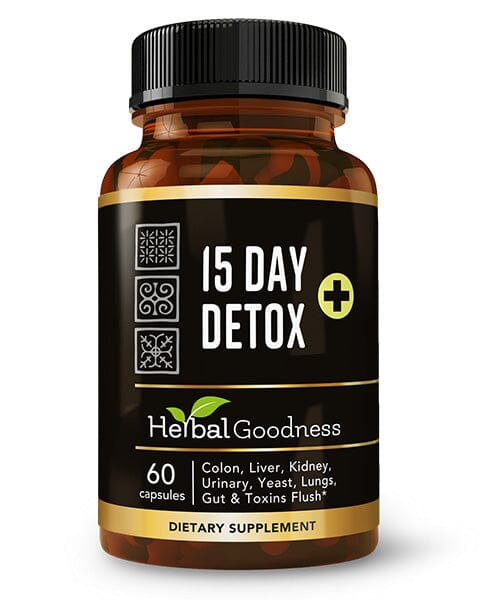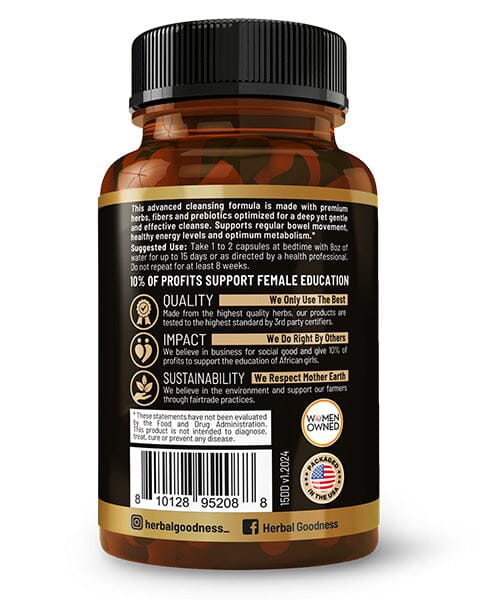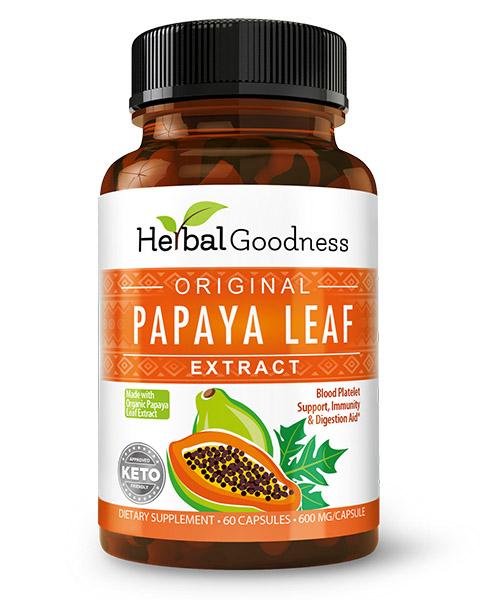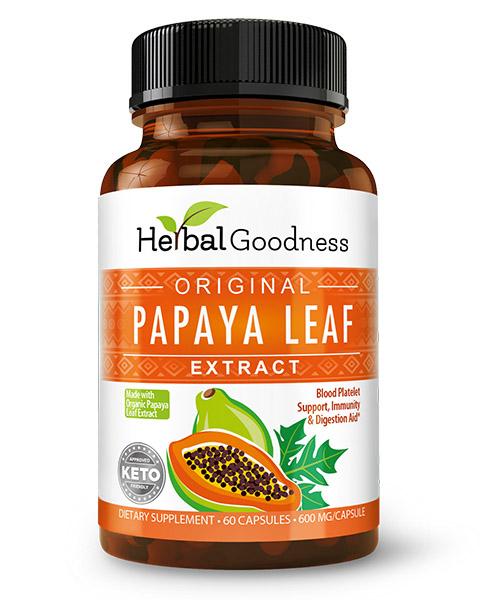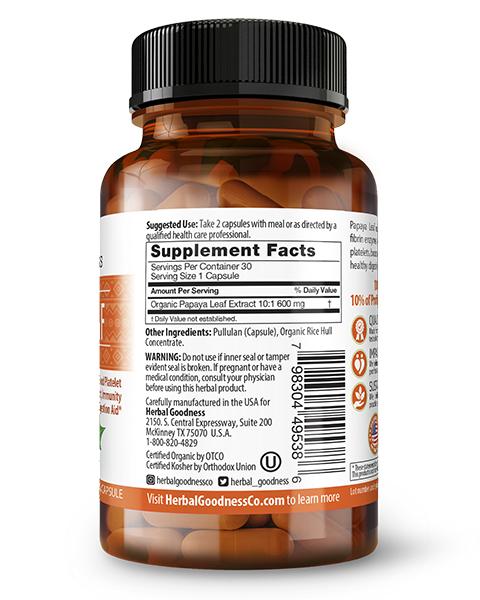An Essential Guide to Guava: History, Benefits & Uses | Herbal Goodness
As a child, I had this habit of smelling Guava leaves. I could tell its distinct scent out from even a hundred leaves. It has this earthy, tropic scent that reminds me of nature and rain. The fruit itself wasn’t far behind on my favorites list; many days as a child saw me sinking my teeth into its pink, juicy interior and reveling in the deliciousness that enveloped my senses. A taste that is a hybrid of pear, strawberry, and bananas. I still binge on fresh, organic, non-GMO guava fruits when I find them and when they are out of season; I supplement the nutritional and sensory void with extracts.
Reading this article will take you on a delicious, nutritional ride into the world of Guavas and answer any questions you may have of this amazing superfood. As well as why it is a popular favorite of fitness and wellness enthusiasts.
What is Guava?
Guava is part of the myrtle fruit tree family. It's known by many names, including guava, goyave, guayabo, and goiaba. Part of the guava history has to do with the size of the tree that the fruit grows on. Unlike other trees, the guava tree is small, reaching up about 33 feet.1 One way that people have identified guava is by its smooth, orange brownish color.
Hold the guava fruit and you may pick up a strong, sweet, or pungent smell (when unripe). Guava fruits, usually 4 to 12 centimeters long, are round or oval depending on the species. They have a pronounced and typical fragrance, similar to lemon rind but less sharp.
The outer skin may be rough, often with a bitter taste, or soft and sweet. Varying between species, the skin can be any thickness, is usually green before maturity, but maybe yellow, maroon, or green when ripe. The pulp inside may be sweet or sour and off-white ("white" guavas) to deep pink ("red" guavas). The seeds in the central pulp vary in number and hardness, depending on the species.
What does Guava taste like?
Guava’s unique smell and taste is one that most people can attest to, I say it has an earthy tropical taste like a combination of strawberries, bananas, and pear. Some other person may say it has a fruity, heady taste with a sour tang. The sweetness of the fruit as well as the fruit’s color depends on what variety you are eating. Some popular varieties include:
- Tropical White has whitish skin with a yellow fleshy interior. It is a great option for desserts because of its very sweet taste.
- Tropical Pink has bright yellow skin with a pink interior flesh. It’s slightly sweet with a strong scent.
- Lemon Guava has, well, you guessed it; a lemony flavor. Small in size and sweetish, this guava has a very strong fragrance and taste. It is commonly known as Apple Guava.
- Tropical Yellow has creamy, white skin with orange-like flesh. This variety is moderately sweet and has a much more succulent interior than the other varieties because of its higher liquid content. It is also commonly referred to as Mexican cream.
- Red Malaysian is sweet with colorful, red skin and pink flesh. This type is sometimes used as a decoration.
History and Traditional Use of Guava
The history of guava in the United States dates to 1847 when the fruit was introduced to Florida's southern areas. Travelers may have brought the fruit back to the United States after visiting tropical areas like the Caribbean or the Bahamas. Furthermore, colonizers from places like Portugal brought guava to Guam and the East Indies. Other places where guava was earlier grown include Egypt, Tropical areas of Africa, and India. Guava is so popular in India that today about 125,327 acres of fruit are grown. In India, Guava has become a major food source. It was also during the 1800s that Hawaii became a part of guava history. It was during the early 1800s that guava started to be cultivated and grown in Hawaii.
The popularity of guava in Hawaii may be why guava started to become a part of the diet of people living on not one, but several of the Pacific islands. From there, guava spread to places like Brazil, Colombia, Venezuela, Panama, and California. Additionally, "the first commercial guava planting was established around 1912 in Palma Sola."2 In addition to growing and harvesting the fruit in its raw form, places like Florida have manufactured the fruit into guava jelly. Although the jelly may not be common in major supermarkets in all parts of the world, some companies continue to manufacture guava jelly. Other parts of the guava such as its leaves and seeds are used to make organic herbal teas and the leaf extract as a supplement.
Health-Supporting Benefits Of Guava
Guava fruits are amazingly rich in antioxidants, lycopene, vitamin C, potassium, water, and fiber. Its leaves are a storehouse of antioxidants, vitamin C, and flavonoids like quercetin. This incredible nutritional content gives them many health-supporting benefits:
- Supports digestion: the presence of antioxidants, fiber, and water supports proper digestion and absorption of food. Drinking guava leaf tea or taking its extract helps with indigestion and similar digestive issues as well as promoting gut health.
- Supports healthy blood sugar levels and healthy weight by preventing carb absorption into the body where it would be converted to unwanted fat and support natural weight goals.
- Support Immune System - the presence of Vitamin C in the fruit and its leaves can help boost immunity. This is especially a necessity as a healthy and active immune system is key to survival post-COVID-19.
- Supports Healthy Hair - Guava leaf works with hair follicles to promote healthy hair growth and prevents hair loss. It is an effective hair, nail, and skin DNA supplement. Guava (Guyana or Guayana) leaf strongly promotes healthy hair regrowth and prevents hair loss. A great addition to your beauty regimen, healthy skin, hair and nails, and anti-aging goals.
- Improved Sleep - This is perhaps the most vital benefit of guava. In a time when schedules, meetings, and deadlines don’t leave our minds and keep our head buzzing even at the end of the day, keeping sleep at bay. Guava is an amazing bedtime sleep support to aid relaxation and calmness. Known for its ability to keep you in a deep sleep state longer, wake up refreshed and rejuvenated.

Herbal Goodness Commitment to Quality: Organic Non-Genetically Modified Guava and Guava leaf products.
We take great pride that our product is manufactured and packaged in the United States. Every batch of our products is safe from microbial contamination and heavy metals. Creating the highest quality products starts with the highest quality ingredients.
References
- Wikipedia. What is Guava? Accessed on May 21, 2021.
- Los Angeles Times. Guava: Ripe Taste of the Tropics. Accessed on June 22, 1989.




